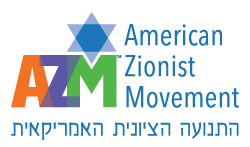My father began his journey with Judaism after his brother passed away at the early age of 33 – he looked to Judaism as a way to cope with his loss and a way to reconnect with G-d. A few months later my sister, 4, and I, 6, were enrolled in Hebrew school, attended our Reconstructionist synagogue weekly, and then later a confirmation class throughout high school. However, it was not until recently in the last couple years that I started to discover my own Jewish identity. Unlike my father, I began this self-exploration in my early twenties after I completed my graduate studies. I started getting involved in JFNA’s The Associated as a philanthropic volunteer, B’nai Israel Young Adult programming for Jewish programming, and Etz Chaim Center for Jewish Learning. I wanted to explore all avenues of Jewish education and meet Jews from all different backgrounds.
However, despite my newfound connection to Judaism, Zionism, or tsiyonut, was not a word that I understood until I stepped foot on Israeli soil in January 2014. Before my Birthright trip I had never had a strong connection to the homeland and it was not until I went to the wall on our third day that I started to become emotional; I broke down and cried. I felt an overwhelming connection to my Jewish ancestors, the Jewish people, and the land and state of Israel. Perhaps it was the fact that this wall made of stone resembled the struggles and triumphs on the Jewish people: Or maybe that my ancestors had stood at the very same wall with the hope of living in a future land of acceptance. I recognize that this moment and feeling not have been possible if it was not for the Jewish people who fought for our right to establish and live in the Jewish state.
Because of the implementation of the Zionistic concept by the founding leaders of the state of Israel “Next year in Israel” is now possible for the Jewish people. It’s hard to imagine that this was but a dream for so many merely 60 years ago. A state like none-other, the Zionist movement has allowed Israel to be the homeland for Jews all over the world; a place where we are liberated from anti-Semitism and a land where we can live with a foundation of security and peace. However, it is evident that this would not be possible without the groundwork and function of the Israeli government.
One of the world’s leaders in defense, security, and advocated for peace, the Israeli government is a model for all nations. This is one of the reasons I will be participating in the Israel Government Fellows program; not only to continue my learning around emergency policy but to also utilize the skills and knowledge I have gained in my career and studies and apply them to making the world a safer and better place to live “tikkun olam.” My passion for learning has led me to find a purpose in helping people, understanding complex systems, and thinking globally to create sustainable change. I believe that my studies in emergency medicine policy and disaster health management are undeniably applicable to the work the Israeli government does daily. Being a fellow in Israel for the Government Fellows program and working with the Israeli government will give me insight on challenges Israel faces daily and the mitigation and planning tactics used to ensure the safety and security of the state of Israel.
The ability to experience Israel as an Israel Government Fellow will also allow me to continue my self-exploration as a Jewish woman and community member. I will be able to bring back the knowledge and skills I have acquired in the program to the United States and become a stronger advocate for Zionism and the Zionist movement. I will not only be gaining knowledge for real world application, but I will also be immersed in Jewish history and culture which will undeniably help strengthen my bond to Israel and to Judaism.
